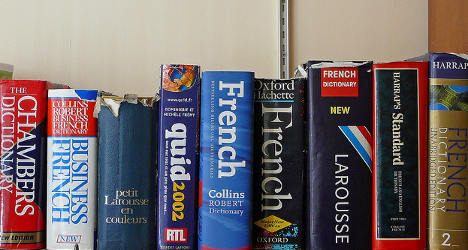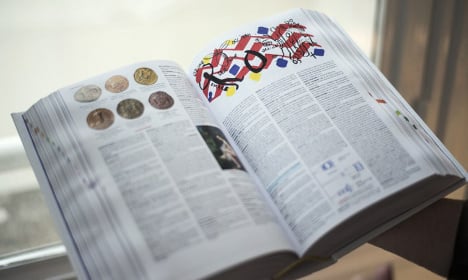
(Photo: Tim Green/Flickr)
“We need a dynamic approach towards the language. Of course I want to defend the French language but not to the point of preventing any influence from outside,” she said.
English words were just a small proportion of the new words that were accepted into the French dictionaries.
The Larousse dictionary added the term VTC (Vehicle de Tourisme avec Chauffeur), which basically means a private hire cab – a move that will probably not go down well with traditional French cabbies.
The French term “Zadiste” found an official home in Le Petit Robert dictionary a sign of how frequently it has been used in recent months.
A “zadiste” refers to a protester who occupies a “zone to defend” such as those camped out at the location of a proposed new dam at Sivens, south west France last year.
The recent controversy around pollution levels in French cities has resulted in circulation alternée (alternated traffic) and particule fine (fine particle) enter the Larousse.
Glamouriser (to glamorize), rétropédaler ( to back pedal), électrosensibilité (electrosensitivity), capitaliser (to capitalize) and surréagir (to overreact) also made it into Larrouse.
And Le Petit Robert also added a couple of new French expressions into the dictionary – Tendue comme un string – (as tight/tense as a thong/g-string) and maquillée comme un camion volé (disguised/made up/given a makeover like a stolen lorry).
SEE ALSO: Ten French expressions you won't learn at school





 Please whitelist us to continue reading.
Please whitelist us to continue reading.
Member comments